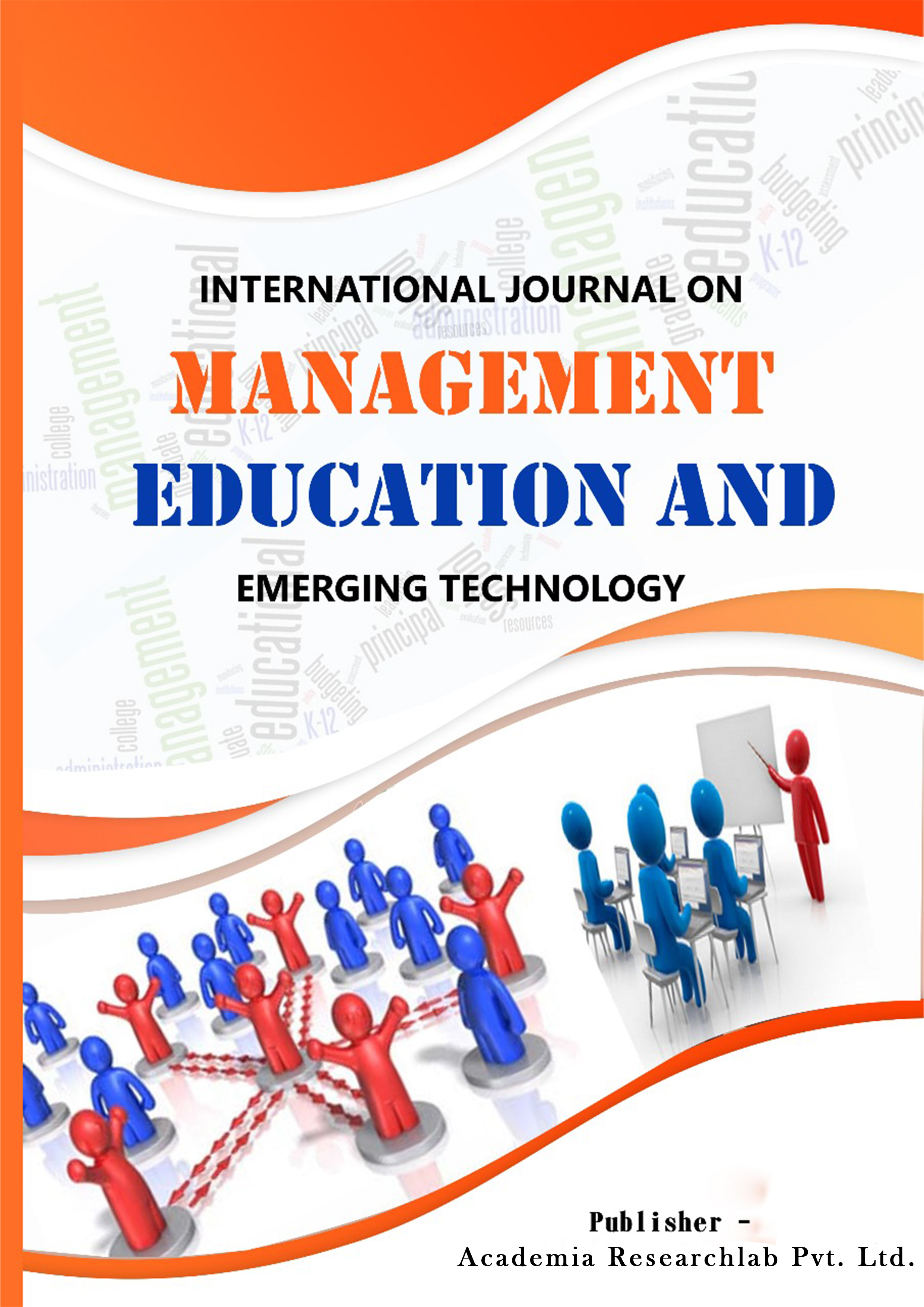Influential Factors of Human Resource Management Practices on Employee Performance in Libyan Public Higher Education
Keywords:
Employee performance, Leadership style, Organisational culture, Employee well-being, Training and development, Job design, Compensation practices, Recognition practices, Technological innovation, LibyaAbstract
This study explores into the intricate factors shaping employee performance within Libyan public higher education institutions. Utilizing both empirical evidence and theoretical constructs, it pinpoints key influencers such as leadership approach, organizational ethos, employee welfare, training initiatives, job structuring, compensation strategies, and technological integration. Results underscore the essential role of supportive leadership, fostering a positive organizational climate, and prioritizing employee well-being in cultivating an environment conducive to optimal performance. Moreover, strategic job design, equitable compensation, and acknowledgment practices emerge as instrumental drivers of employee motivation and commitment. The research emphasizes the significance of investing in employee development to bolster skill acquisition and career advancement opportunities. Furthermore, embracing technological innovations is deemed essential for enhancing operational efficiency and promoting collaborative efforts among staff members. Implementation of these findings can catalyze the establishment of a culture characterized by excellence, engagement, and employee welfare, thereby fueling sustainable performance outcomes. This study makes a valuable contribution to existing literature by shedding light on the dynamics of employee performance within Libyan higher education settings and furnishing actionable insights for organizational leaders and policymakers.
References
Ageila Ali Elabbar. (2017). National Libyan Public Education Reform: Entire Transformative Strategies, 2020- 2026. American Journal of Educational Research, 1044-1057.
Aisha Nasef, Mohamed A. Al-Griw, & Adel el Taguri. (2020). Improving Quality of Education in Extreme Adversities-The case of Libya. Journal of Bilogy and Medicine , 6 - 11.
Alansary Elkhouly, Oqbah Jummah Masoud, & Husen A Shafsha. (2021). Higher education in Libya, challenges and problems: a descriptive study. American Research Journal of Humanities & Social Science (ARJHSS), 52-60.
Alaswed, N., Ahmed, S. M., & Javid, M. (2019). HRM practices in Libyan HEIs: A qualitative study. Journal of Higher Education Policy and Management, 41(4), 431-447.
Amal Rhema, & Iwona Miliszewska. (2010). Towards E-Learning in Higher Education in Libya. Issues in Informing Science and Information Technology, 1-13.
Bass, B. M. (1985). Leadership and performance beyond expectations. Free Press.
Bibi, P., Ahmad, A. & Majid, A., 2018. HRM Practices and Employee Retention: The Moderating Effect of Work Environment”, Ali, F., Rasoolimanesh, S.M. and Cobanoglu, C. (Ed.) Applying Partial Least Squares in Tourism and Hospitality Research. Emerald Publishing Limited, Bingley, pp. 129-152.
Cameron, K. S., & Quinn, R. E. (2011). Diagnosing and changing organisational culture: Based on the competing values framework. John Wiley & Sons.
Gunnigle, P., Lavelle, J., & Monks, K. (2018). Human resource management and performance in higher education: The role of the dean. Journal of Higher Education Policy and Management, 40(4), 345-359.
Hackman, J. R., & Oldham, G. R. (1976). Motivation through the design of work: Test of a theory. Organisational behaviour and human performance, 16(2), 250-279.
Judge, T. A., & Watanabe, S. (1993). Another look at the job satisfaction-life satisfaction relationship. Journal of Applied Psychology, 78(6), 939.
Kahn, W. A. (1990). Psychological conditions of personal engagement and disengagement at work. Academy of management journal, 33(4), 692-724.
Liu, D., Zhang, S., & Chen, Y. (2020). Human resource management practices and employee performance: A systematic review and meta-analysis. Sustainability, 12(18), 7521.
Muftah Elsalak, 2021 . Human Resource Management challenges in Libya.
Podsakoff, P. M., MacKenzie, S. B., Paine, J. B., & Bachrach, D. G. (2000). Organisational citizenship behaviours: A critical review of the theoretical and empirical literature and suggestions for future research. Journal of management, 26(3), 513-563.
Rusbult, C. E., Farrell, D., Rogers, G., & Mainous, A. G. (1988). Impact of exchange variables on exit, voice, loyalty, and neglect: An integrative model of responses to declining job satisfaction. Academy of Management Journal, 31(3), 599-627.
Saks, A. M. (2006). Antecedents and consequences of employee engagement. Journal of managerial psychology, 21(7), 600-619.
Schneider, B., Gunnarson, S. K., & Wheeler, J. K. (1992). The role of opportunity in the conceptualisation and measurement of job satisfaction: A critique and re-evaluation. Journal of Applied Psychology, 77(4), 600.
Snitjer, Y. (2021). Human Resource Management challenges in Libya. Human Resource Management Challenges in Libya , (human resource management), 41.
Warr, P., Cook, J., & Wall, T. (1979). Scales for the measurement of some work attitudes and aspects of psychological well-being. Journal of Occupational Psychology, 52(2), 129-148.
Additional Files
Published
How to Cite
Issue
Section
License
Copyright (c) 2024 International Journal on Management Education and Emerging Technology(IJMEET)

This work is licensed under a Creative Commons Attribution-NonCommercial-NoDerivatives 4.0 International License.





